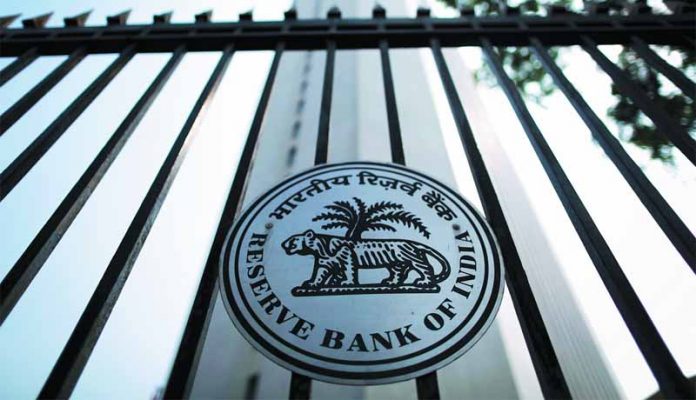The article is written by Anaya Tulankar, from RTI Cell, iPleaders and the article has been edited by Khushi Sharma (Trainee Associate, Blog iPleaders) and Vanshika Kapoor (Senior Managing Editor, Blog iPleaders).
Table of Contents
Introduction
Beginning from the 1st of October, the auto-transaction rules are expected to be altered. As previously stated by the Reserve Bank of India (RBI) that the recurrent transactions given effect through debit cards, credit cards, and Unified Payments Interface (UPI) or any prepaid payment instruments (PPIs) will require an additional factor authentication (AFA).
Earlier, rules were to come into operation from the 1st of April 2021, but the RBI stretched the deadline for six months as numerous banks had not conformed with the rules.
Many credit and debit card operators set auto-payment commands for numerous services extending from phone, electricity, and gas bills to OTT platform memberships, these newly made rules are bound to create a state of confusion for the users.
Banks have initiated notifying their respective customers about the new rules in auto-debit transactions as directed by the Reserve Bank of India (RBI) “As per RBI’s recurring payment guidelines, w.e.f. 20-09-21, Standing Instructions on your Axis Bank Card(s) for recurring transactions will not be honored. You can pay the merchant directly using your card for uninterrupted service,” was a message sent by the Axis Bank.
HDFC Bank has sent alerts to its clients via e-mail which reads, “The new conditions prescribed by RBI require a cohesive effort by all stakeholders, including card Issuing banks, Merchant Acquiring Banks, Card Networks, and Merchants. All constituents must complete the development, integration, and deployment of a common platform fully compliant with the RBI guidelines. A common industry-wide platform is being developed, and HDFC Bank has completed its internal development and integration. We are now working jointly with merchants to make this platform live for customers at the earliest.”
The RBI had announced these changes to make the auto-debit procedure safer and deliver more flexibility to the clienteles. The additional factor authentication (AFA) guidelines of the Reserve Bank of India (RBI) will be applied from the 1st of October.
The payment will not be complete if clienteles do not accept or respond to the pre-debit notification. Banks are obligated to send in a communication 24 hours prior to the deadline of the payment. Clients will have the prospect of altering or abandoning the transaction. They will also have the freedom or ability to abandon, view, or change any standing directions set on their card. The changed rules will not influence e-NACH and UPI autopay transactions.
What changes are expected in the rules
The Banks, payment collectors, and merchants are hustling to abide by the new auto-debut rules instructed by the Reserve Bank of India (RBI). They have also started informing clienteles about the rule change.
Nevertheless, specialists submit that not all banks may become successful in sticking to the central bank’s deadline. Although banks and financial institutions are striving for a smooth changeover, online merchants and customers could face disturbances due to the new auto-payment rules through debit and credit cards.
Leading private banks are at work with payment aggregators like Razorpay and BillDesk to fit in with a typical e-mandate stage for certifying compliance.
A Notification put up by the RBI that was issued on the 21st of August 2019 said that “relaxation in Additional Factor of Authentication (AFA) was permitted while processing e-mandates / standing instructions on cards and Prepaid Payment Instruments (PPIs) for recurring transactions with values up to Rs 2,000/-, subject to conditions listed therein. These instructions were later extended to Unified Payments Interface (UPI) as well.”
The RBI also specified in notification on Developmental and Regulatory Policies dated the 4th of December, 2020, that “the aforesaid transaction limit will be increased. Accordingly, it has been decided to increase the above limit for AFA relaxation to Rs 5,000/- per transaction, with effect from the 1st of January, 2021.”
According to RBI’s altered rules on the auto-payments or transactions from the 1st of October, all frequent transactions will need added verification. The payments exceeding ₹5,000 will be followed by a one-time password (OTP) and will need authentication by a purchaser when a payment is due. These rules will be applicable to both domestic and international credit and debit cards.
Following are all the details you need to know regarding the new rules:
1) All the Instructions on your credit card and debit card (both domestic and international) will not be treated without the added factor of verification through the OTP system.
2) Mandate registration, deletion, and modifications will need additional factor authentication (AFA) from now on.
3) Clienteles will get a pre-debit notification through SMS or e-mail 24 hours prior to the transaction.
4) People can choose to cancel the payment or the command through the link provided in the pre-debit notification.
5) The ability to view/modify/cancel any of the instructions set on their cards.
6) Clients can set a maximum sum for each SI. If the payment total is larger than the maximum amount allocated by the client, the pre-debit notice will have a link for the customer to confirm the action with AFA. Lacking this substantiation, the transaction will not be completed.
7) Any recurrent transactions of an amount more than ₹5, 000 will necessitate AFA each time the sum is debited.
8) If the instructions for the transactions are registered on your Bank account, there will be no alteration. If these are on your bank’s debit or credit card, these will fail from the 1st of October 2021.
How will this impact the card operation
All the standing directions will not be processed. Registration, alteration, and removal will necessitate additional factor authentication.
There will be no change if the standing instructions for bill payments are registered on a user’s bank account. The new rules will only impact the standing instructions on debit and credit cards.
Here is what the clients can do to dodge defaulting on recurrent payments: –
The payments made for merchants already joined with the technology infrastructure will be permitted. However, the operators will have to stipulate or go through the registration procedure where they will have to key in the validity period and the most amount of the standing instructions.
Any transaction appeal beyond the limited sum will need an OTP-based verification at the time of the payment. The AFA has been permitted only for transactions below ₹5,000.
For succeeding payments inside this threshold, the authorizing bank will lead a user a debit statement with the amount and name of the merchant 24 hours before each payment. The statement will also comprise a link that will direct them to a page where the users can view, modify or cancel the payment or the command. If they take no action on the notification, the payment will be taken out.
If a bank has not communicated any notification to the users about the future changes, they will have to make straight payments to facility providers through merchant apps, sites, or their bank’s net-banking provisions to sidestep defaulting on the transactions.
The banks will not impose any charges. However, in the incident of merchant/service providers imposing any charges/fees in the direction of the non/delayed payments, the bank will not be accountable.
How does the changes in rules affect the banks
For banks and payment institutions, the new rules pose a significant challenge. It will require them to overhaul existing recurring payment flows and maintain standardization for the smooth execution of payments.
Even as the RBI’s limit ends in just a few days, many banks are having trouble bringing advancement in their system, and payment aggregators are incapable of joining in with them. The banks have still started communicating to the customers very late and delaying the process.
Some moneylenders have even directed customers to make direct payment for standing instructions as the longstanding facility may not work primarily. While leading private banks said they are prepared to obey the RBI’s guidelines, some early disturbances are probable.
Many credit and debit card users set auto-payment instructions for goods and services ranging from electricity and gas to music and movie subscriptions, and the banks fear that new rules could lead to chaos for millions of users.
The banks and payment institutions were asked to refurbish the existing frequent payment flows and preserve standardization for the smooth implementation of the payments.
All the notifications concerning such communication will come on users’ recorded phone numbers and e-mail IDs. So, the account holders must guarantee that those correct particulars are linked to their cards.
Conclusion
In simple words, clienteles have to provide additional factor authentication (AFA) by accepting the auto-debit request in advance. The payments will not be made if clienteles do not accept or reply to the pre-debit communication.
Monthly transactions can be traced easily by clienteles who prefer making payments in cash. The change in auto-debit will be a good opportunity from the stance of the people who cannot sustain consistent cash inflows.
The customers should remember that only standing commands on cards will be obstructed and not standing instructions given to banks by clienteles. Hence, EMIs and SIPs payments will not face any confusion.
LawSikho has created a telegram group for exchanging legal knowledge, referrals and various opportunities. You can click on this link and join:
https://t.me/joinchat/J_0YrBa4IBSHdpuTfQO_sA
Follow us on Instagram and subscribe to our YouTube channel for more amazing legal content.
 Serato DJ Crack 2025Serato DJ PRO Crack
Serato DJ Crack 2025Serato DJ PRO Crack










 Allow notifications
Allow notifications


